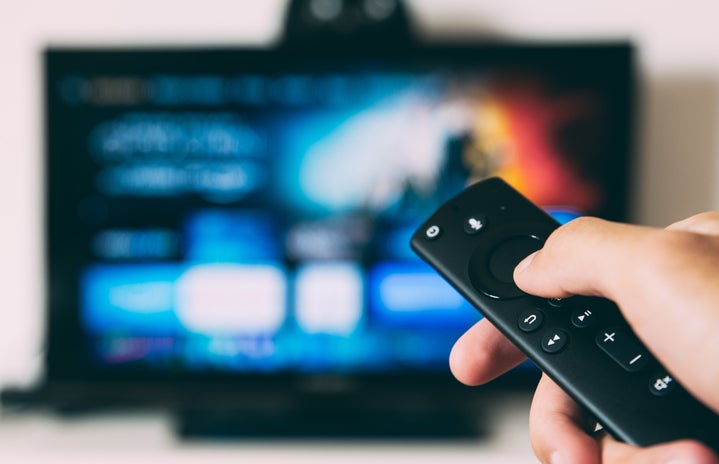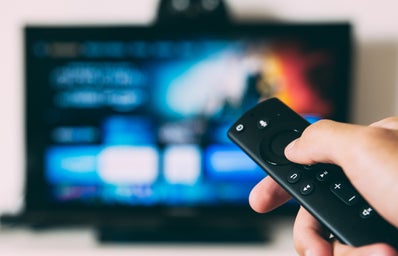Since its inception, Disney+ has enticed viewers with its vast array of nostalgic movies, blockbuster franchises, original shows, and exclusive content, surging in popularity due to the Covid-19 pandemic. Like many others in quarantine, I found myself rewatching several favorites such as Mulan, The Lion King, Moana, and Zootopia, a film that revolutionized Disney and animation in general and continues to significantly impact society five years later.
Released in 2016 to much critical acclaim, Zootopia—a daring, action-packed adventure saturated with witty jokes and subtle racial undertones—captured both adult and children audiences alike, winning the 2017 Academy Award for Best Animated Feature Film. Like its predecessors, Zootopia shines in its relative simplicity and memorable characters as well as its layered, unconventional story that highlights pressing social issues such as discrimination and classism in an engaging, thoughtful, and comedic manner.
Directed by Bryon Howard and Richard Moore, Zootopia functions as an allegory for contemporary American society, presenting a reality that stresses the dichotomy between POCs and white individuals (predator-prey relationship) while still grounding itself in its anthropomorphized universe. As such, everything from media (ZNN) and technology (Carrot-phones) to class structure and stereotypical assumptions is reimagined in animal terms. It’s no wonder then, that this reflected world—one in which predators and prey live in harmony, with predators learning to forgo their “primitive savage ways” of hunting and consuming prey—is teeming with internal conflict.
Ginnifer Goodwin of ABC’s Once Upon A Time deftly voices the movie’s endearing, optimistic rabbit heroine, Judy Hops, who aspires to become Zootopia’s first “bunny cop,” an ambition that’s overlooked and belittled by those around her, including her parents, peers, and various authority figures.
Regardless of these deferments, Judy graduates top of her police class and, against her parents’ reluctance and insistence on a fox-taser (because oh yes, species-sim is as apparent as racism in our world), leaves to pursue her dreams of joining the police force, embarking on a glistening train-ride through the gleaming metropolis.
It’s no surprise that Disney has eclipsed themselves again, as each subsequent film surpasses the former in technological prowess and design. Zootopia’s glimmering hub is no exception, as the movie’s dazzling districts rival Frozen’s ice castles, transporting viewers straight into its shimmering median.
Despite Judy’s high expectations, she’s relegated to parking duty by the entitled Chief Bogo (Idris Elba). Shortly after, she’s duped by the con-artist Nick Wilde (Jason Bateman), a cunning fox whom she later teams up with to solve a missing mammal’s case, a series of mysterious occurrences in which predators have disappeared and turned “savage” (a term that implies both the animal’s “dangerous state” as well as society’s racially coded language towards minority groups) that acts as the film’s central detective storyline.
There’s a greater implication in Judy’s opposition, as her struggle to find animals that take her seriously echoes the social and political challenges women have endured for centuries. Judy is continuously underestimated and disregarded, as seen through various species-demeaning nicknames such as “Carrots,” “Cottontail,” and “Fluffbut” that demonstrate society’s sheer disrespect for her, both as a woman and as a smaller species. Consequently, these social parallels illuminate central aspects of racism and classism that might escape younger viewers, enabling Zootopia to directly introduce difficult concepts to youth as well as generate insight for adults.
At its core, Zootopia is a film about corrupted, bigoted authority figures that take advantage of minority groups by oppressing them and inducing fear in the general population. Even to children, it’s clear who the oppressors—the prey population (“white animals”)—and the oppressed—the predators (“POCs”)—are. Disney isn’t afraid to openly exhibit Zootopia’s predisposed discrimination and prejudice towards others, blatantly illustrating individuals’ implicit biases and society’s brutal injustices against subjugated groups. In a montage after a heated press conference increases tensions between the two groups, a rabbit mother vigorously pulls her kid towards her after a tiger sits beside them on the subway, alluding to white treatment of African Americans. Another shot depicts a peaceful rally organized by popstar Gazelle (Shakira) that quickly turns hostile, as ignorant prey scream to a protesting cheetah, “Go back to the forest predator,” mirroring the many obscenities and vulgar speech hurled at marginalized Americans. As with real-life, racial strain erupts and humanity plummets into chaos and violence; and honestly, if this isn’t a direct criticism and accurate reflection of modern American society (and civilization in general), then what is?
Amid its present anti-racist implications, Zootopia remains cheekily aware of its stereotyping and clever references. It slips in several quick jokes: a drawled-out DMV-sloth encounter that emphasizes the slowness of the bureaucracy and an exaggerated Godfather sequence that overstays its welcome, as well as jabs at Disney’s standard “princess” storyline and naïve, optimistic format, all the while never reaching full preachiness. It’s much too adroit for that and prides itself on its ability to depict subtle messages of great significance to both adults and children.
For instance, during a poignant scene, Nick reveals to Judy: “If the world’s only going to see a fox as shifty and untrustworthy, there’s no point in trying to be anything else.” Like so many subjugated groups, Nick’s resigned, cynical statement reflects the oppressed nature of minorities as well as portrays the lack of economic opportunity and unequal distribution of wealth and resources for these peoples, further condemning society’s xenophobia and hierarchical structure.
And yet, it is through these visceral, compelling scenes that Zootopia reminds us of our humanity, of the beauty in embracing and understanding one another despite our differences. It’s here that all of Zootopia’s nuances fuse to form the crux of the film’s argument —that people of all ethnicities and backgrounds should learn to live in harmony and treat each other with respect and equality, a message Disney implies is possible not just for its characters, who gradually shed their innate biases, but for everyone. An obvious statement, yes, yet one we’re still reconciling with in 2021, elevating Zootopia to greater heights and cultural relevance than before.
Indeed, the numerous police shootings of African Americans (George Floyd, Breonna Taylor, Daunte Wright), hate crimes against Asian Americans (Atlanta Spa Shootings, various incidents spurred by Covid-19), the Capitol Insurrection/Domestic Terror Attack, and other instances of sheer racism, discrimination, xenophobia, and homophobia explicitly demonstrate humanity’s blatant subjugation and mistreatment of minority groups, a notion that has been extended to include anyone that diverges from the norm and seeks valued acceptance within the confines of dominant society. As a nation founded on the idea of freedom, liberty, justice, and equality for all, America should embrace its diversity and rich multicultural composition, not erase, oppress, or discriminate those distinct aspects that contribute to its uniqueness and beauty.
If these recent detestable actions have taught us anything, it is that we can no longer ignore the consequences of blind racism and bigotry nor sit silently while injustices occur. We must actively combat and recognize these forms of oppression and directly work towards inducing progressive change within society, a perspective which Zootopia advocates for and insists is possible.
Placed within the context of 2020-2021’s escalating racial tensions and civil rights movements such as BLM and Stop Asian Hate, Zootopia stands as one of Disney’s strongest films, appealing to all ages for its playful, mature themes as well as its ability to truly resonate within society, reminding us that despite our progress, we’re all still animals at heart.


